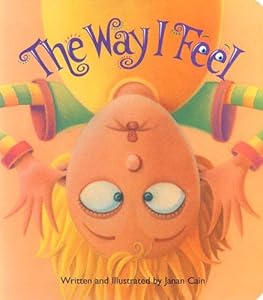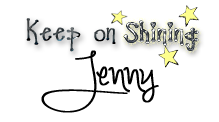
I would like to introduce you to my guest this week, Emily. I am so privilaged to have such talented experts among my blogging friends!
Hi there, my name is Emily and I have a little blog called "A Tossed Salad Life." The blog focuses mainly on my recipes, crafts, and my family. Jenny and I participate in a blog mentoring group together, and she mentioned that she was interested in starting up a series of guest contributors. When she asked if anyone might be able to assist, I was delighted to volunteer!
While my blog discusses slow cooker recipes and sewing projects, I have a day job as a developmental psychologist. I have spent
I thought that I would talk today about temper tantrums. Temper tantrums are very common experiences in children who are between the ages of one and four. They are completely normal! Every parent who has taken their toddler/young preschooler out into the world has had their child tantrum to some degree, at some point in time!
Just because tantrums are extremely common:
1) Doesn't mean that they aren't frustrating;
2) Doesn't mean that some children have worse and more frequent tantrums than other children;
3) Doesn't mean that you are a bad parent!!!
I have vivid memories of my 10-year-old screaming and carrying on in a restaurant one night when he was about a year and a half old. He wanted to explore and it was getting close to his bedtime. He started screaming, and I took him into the foyer of the restaurant. I then must have spent a good fifteen minutes calming both of us down before returning to our meal. Around this time, I decided to change the way I was thinking about tantrums. I knew in my head his tantrums were not meant to be elaborate plots to disrupt things, but when they were happening, I felt angry and upset at my son for his behavior and at myself for my inability to manage them.
Luckily, I found this book called the Chocolate Covered Cookie Tantrum, and my son and I read that book a lot. It discusses the perspective of the tantrum from the little girl, not the parent. When I read the book, it reinforced everything that I knew about tantrums, but it gently reminded me about how my son must be feeling when he was tantruming. Toddlers feel out of control when they are tantruming. It's a whirlwind of emotions-- rage, sadness, frustration, impatience, and exhaustion. The author and illustrator of the Chocolate Covered Cookie Tantrum really captures the intensity of the emotions that a tantruming toddler is experiencing.
One of the things that we started doing with my son is labeling what was going on during his tantrums. We gave him words to help explain his emotional tornado. As adults, we use language to help regulate our own emotional experiences. Think about when you start feeling mad or frustrated or anxious. You have the physiological reaction, and then you start labeling how you are feeling, and thinking about solutions. All of this involves using your words!
Little guys don't have those words, and lots of times, don't even know what they are feeling-- they just know it feels bad... and big... and scary! For my son, we started talking him through his tantruming. What I was trying to do was giving him the words that he didn't have yet. "You're so mad. You are so mad that we had to leave the park. You liked the park. You wanted to stay. You feel mad when Mommy says it is time to come home. You feel so sad that you can't play all day at the park. You are mad that you can't do everything you want to do..." It basically is giving a running dialogue for the tantrum. It is a technique that I have recommended to parents since, and have heard others' recommend to parents.
I want to point out that I wasn't telling my son that it was okay to tantrum. I wasn't condoning his tantrum, just trying to help him develop some skills to prevent future tantrums. I was being matter-of-fact. Sticking only to the facts, but including emotional language. If he had started to hit me, or slap me, or become physically aggressive, I would have needed to address that. This was for my son who was just flailing about on the ground, screaming and wailing.
We also started learning about emotions, just like we learned about shapes and colors and numbers. We got a number of books that talked about feelings and recognizing them. It is so helpful to kiddos to develop this skill. It gives them power over their emotions! Tantrums are the opposite of this-- a sense of being powerless over very big emotions! I want to tell you that it worked. My son got very good at labeling emotions. I remember having him tell me at four that he was frustrated or nervous. If you are looking for emotion labeling books. I particularly like this one:
(Everything I've talked about describes those typical toddler-aged tantrums that generally start subsiding by the later preschool period, around the age of four. If you have a little guy whose tantrums don't feel typical, or have much older child with tantrums the emotion labeling and emotion narrative will probably be less effective!)
Thank you Emily! What helpful information about handling toddler tantrums! For more information aboue emotional regulation, consider visiting the Conscious Discipline resource page and checking out the Managing Emotional Mayhem book by Dr. Becky Bailey.









